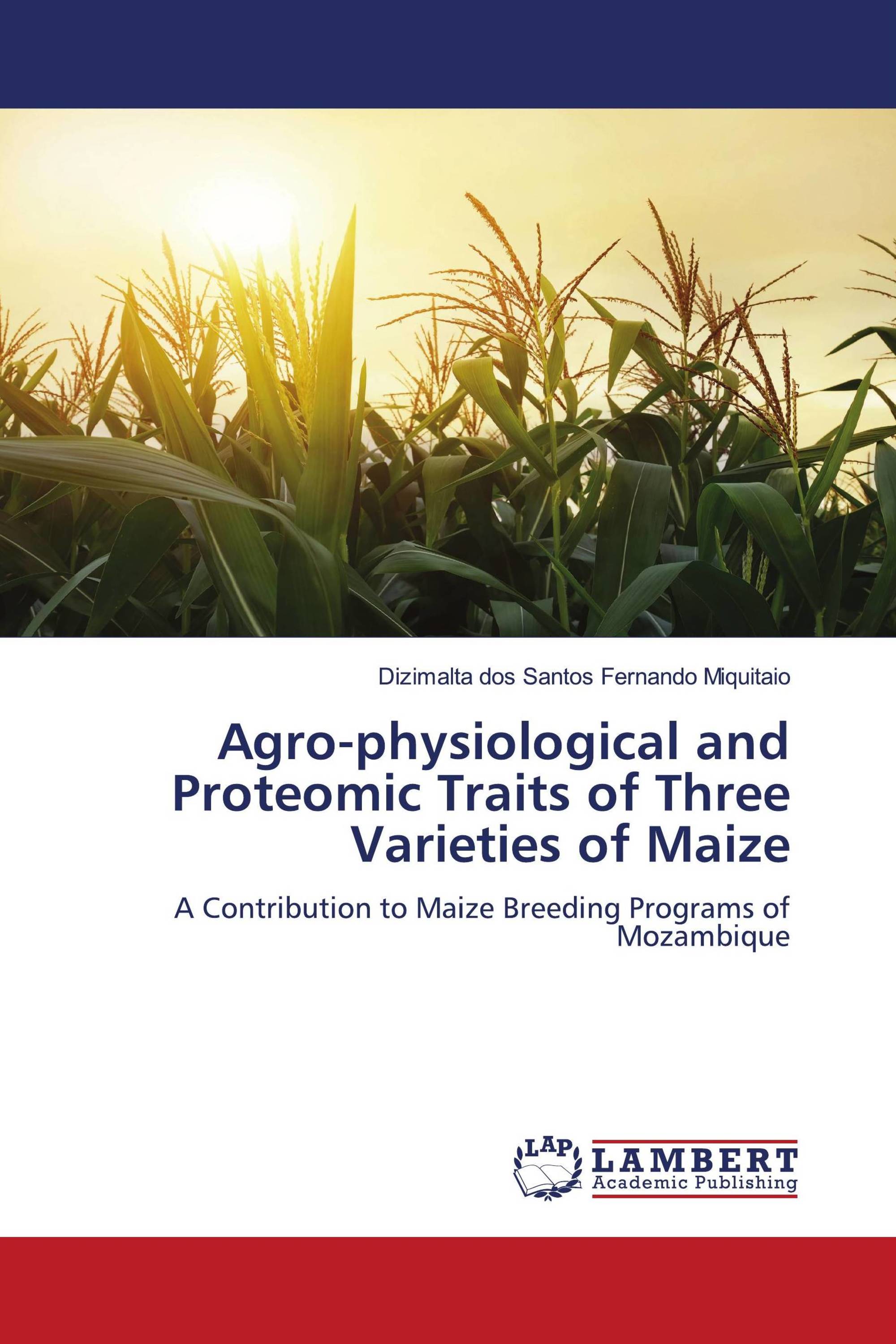Agro-physiological and Proteomic Traits of Three Varieties of Maize
A Contribution to Maize Breeding Programs of Mozambique
€ 84,90
This book describes a study where agronomic, physiological, and proteomic approaches were combined to explore drought-resistance features in three common Mozambican open-pollinated maize varieties, Matuba, ZM309, and ZM523, and further including B73 as the control variety. Maize is the most important food crop in Mozambique. However, its production is low and cyclically impaired by droughts. Several strategies are in place to overcome this scenario, such as generating drought-resilient genotypes. The work showed that intercropping and mineral fertilizer contribute to increasing maize production, as compared to monocropping. In addition, water scarcity limited stomata opening, leaf area, and caused leaf-rolling, traits that reduce transpiration. Lower CO2 assimilation, levels of C4-photosynthesis enzymes, RuBisCO activase, RuBisCO large chain, and ATP synthase subunits under severe drought, could allow energy conservation and reduction of reactive oxygen species. HSP70 protein levels increased with drought and could help to maintain protein stability. By including physiological and proteomic data, this work opened new avenues of agriculture research in Mozambique.
Book Details: |
|
|
ISBN-13: |
978-620-7-46712-9 |
|
ISBN-10: |
6207467124 |
|
EAN: |
9786207467129 |
|
Book language: |
English |
|
By (author) : |
Dizimalta dos Santos Fernando Miquitaio |
|
Number of pages: |
224 |
|
Published on: |
2024-02-28 |
|
Category: |
Agriculture, horticulture, forestry, fishery, nutrition |
